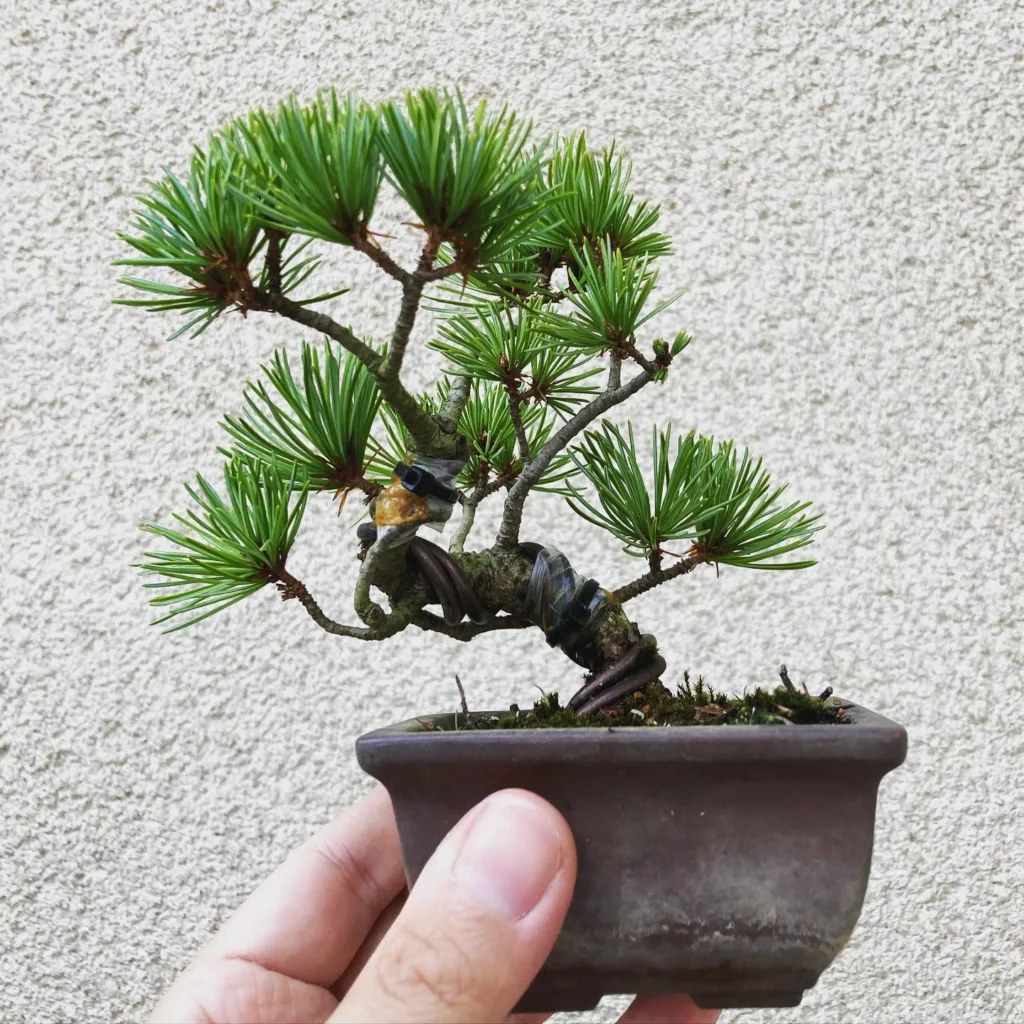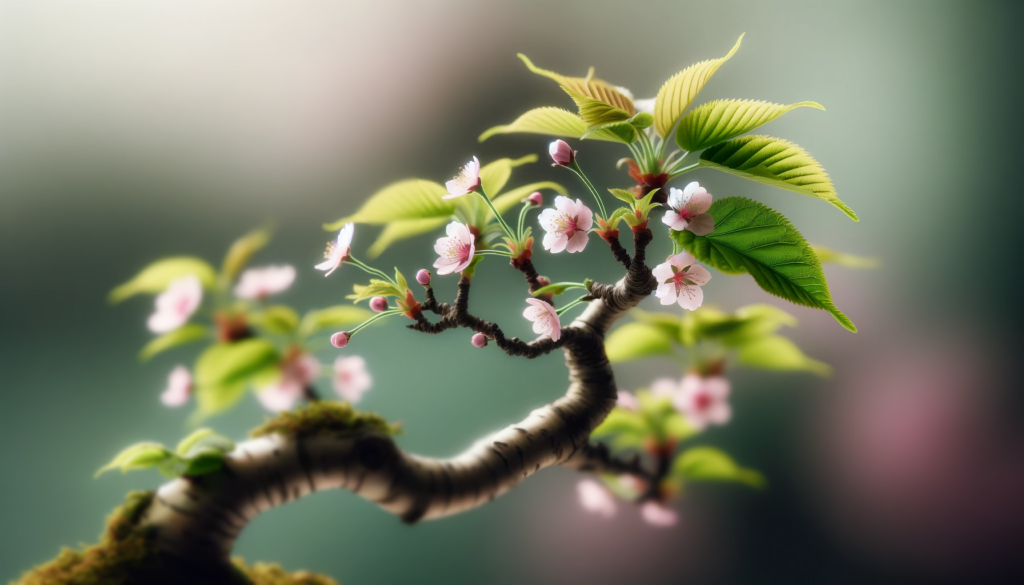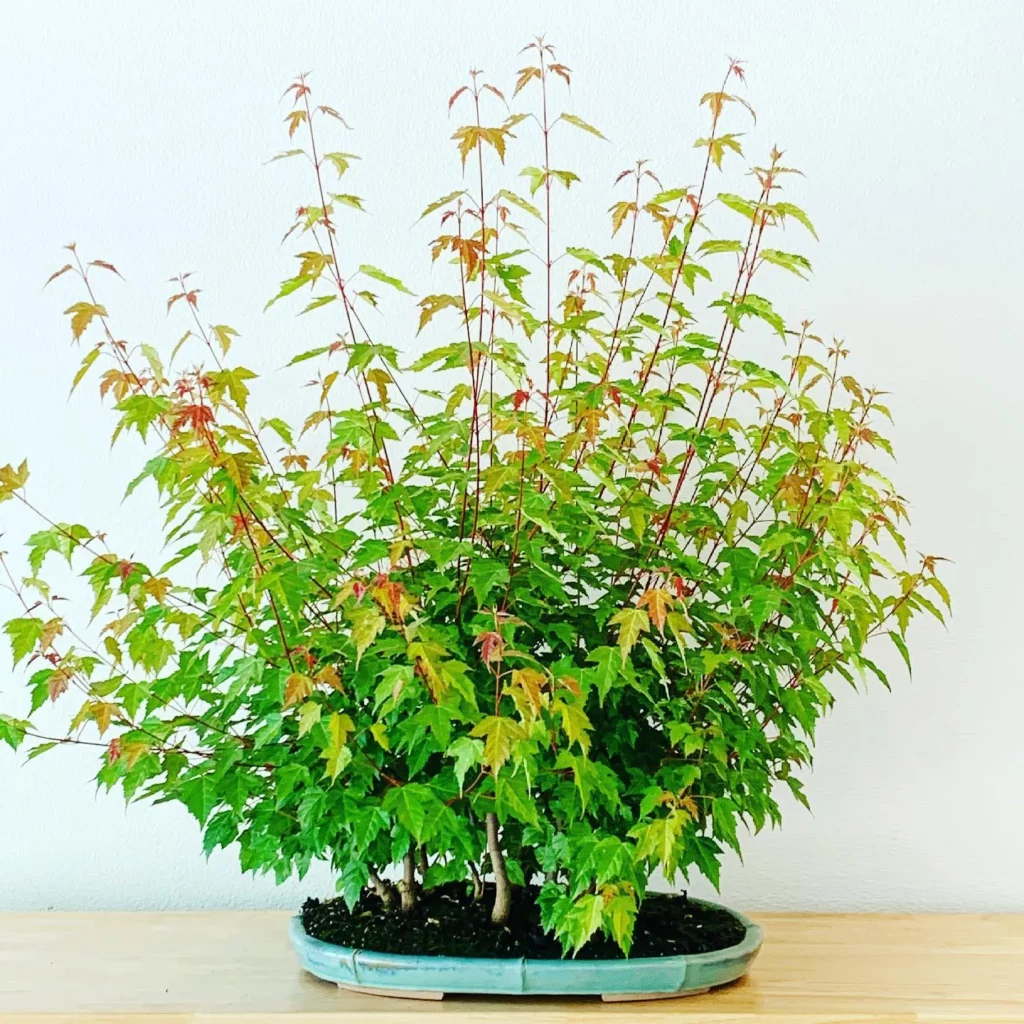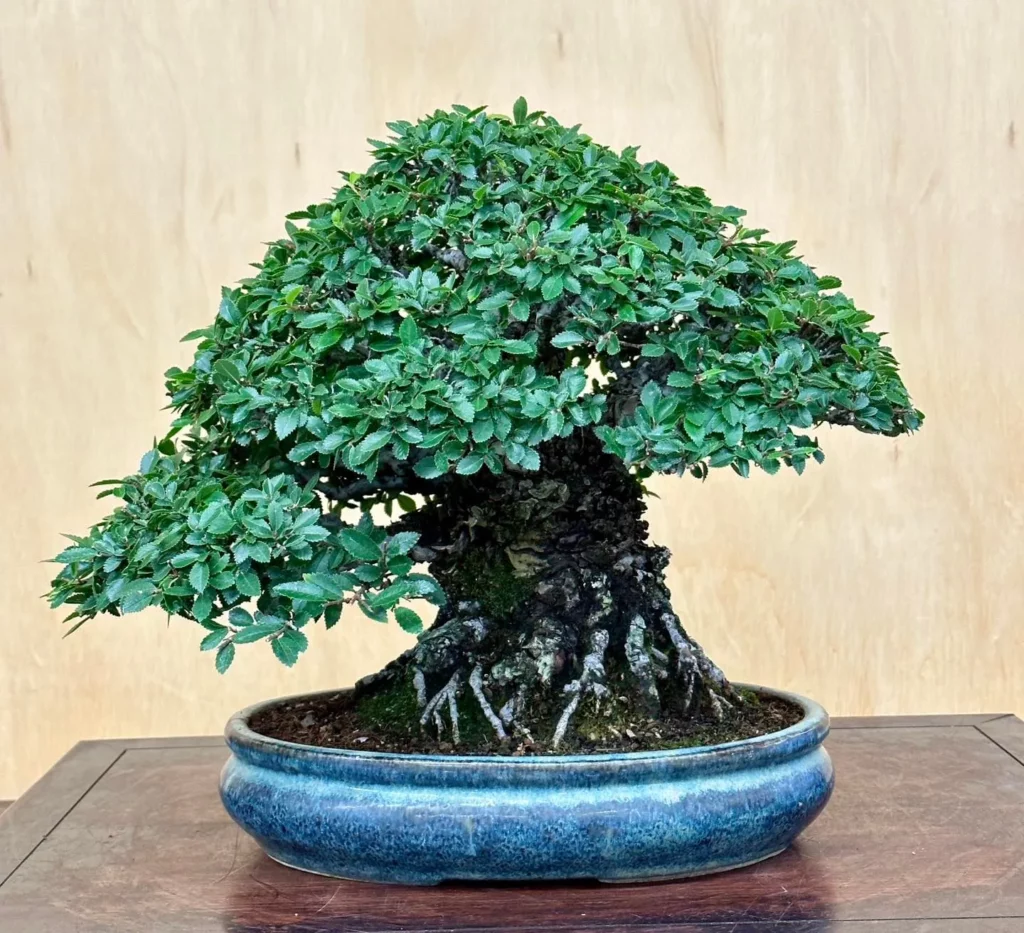If you’re captivated by the elegance and serenity of bonsai trees and want to bring a touch of nature into your indoor space, you’ve come to the right place. This ultimate shopping guide will provide you with all the information you need to buy a bonsai tree that’s perfect for you. From where to buy them to care tips and more, we’ve got you covered.
The World of Bonsai: A Blend of Nature and Artistry
Bonsai trees are more than just plants; they are miniature living sculptures that combine the beauty of nature with the artistry of creating intricate landscapes. Each delicate branch and twist of the trunk is a stroke of serene beauty, embodying timeless elegance. Bonsai trees symbolize harmony, balance, and the passage of time, making them truly captivating pieces of art.

These living sculptures create miniature landscapes that transport you to a tranquil world of natural beauty. The careful pruning and shaping of each bonsai tree result in an enchanting display, where every detail is carefully crafted to create a harmonious composition.
- From the graceful curves of the branches to the placement of each leaf or needle, every element of a bonsai tree is meticulously arranged to evoke a sense of wonder and awe.
- Just like a painter carefully selects colors and textures to create a masterpiece, bonsai artists meticulously choose plant species, pot styles, and display accessories to bring their vision to life.
No products found.
Bonsai trees are not stagnant works of art; they are living entities that evolve and grow over time. As you care for your bonsai tree, you become a custodian of nature’s art, nurturing its growth and guiding its shape. The process of tending to a bonsai tree is a form of meditation, allowing you to connect with nature and find inner peace.
Buying Bonsai Trees Online: Convenient and Accessible
The online world offers a convenient and accessible marketplace for purchasing bonsai trees. Whether you’re a seasoned enthusiast or a beginner looking to embark on this mesmerizing journey, buying bonsai trees online provides a multitude of benefits.

Reliable Platforms and Wide Selection
When searching for bonsai trees online, you’ll find a vast array of reliable platforms that cater specifically to bonsai enthusiasts. These platforms offer a wide selection of trees, ensuring that you can find the perfect match for your preferences and needs. From classic species like Chinese Elm and Japanese Maple to more unique varieties like Ficus and Satsuki Azalea, the options seem endless.
No products found.
These renowned online shopping destinations allow you to browse through a diverse range of bonsai trees, read reviews from other buyers, and make an informed decision from the comfort of your own home. With just a few clicks, you can explore the intricate details of each tree, such as its size, age, and overall appearance, ensuring that you find the perfect bonsai to enhance your living space.
Convenience and Expertise
The convenience of buying bonsai trees online cannot be overstated. Instead of traveling to physical stores or nurseries, you can explore numerous options with just a few taps on your device. Online platforms also offer detailed information about each bonsai, including care instructions, making it easier for beginners to get started on their bonsai journey.
Moreover, reliable online platforms often provide customer reviews and ratings, helping you gauge the quality and reputation of the seller. You can benefit from the experiences and insights of other bonsai enthusiasts, ensuring that your purchase is from a trusted source.
Local Nurseries and Garden Centers: Expert Advice and Quality Assurance
When it comes to buying bonsai trees, local nurseries and garden centers are your go-to destinations. These establishments offer a diverse selection of plants, flowers, and shrubs, and within their inventory, you can find a variety of bonsai trees that will add a touch of natural beauty to your space.

One of the significant advantages of shopping at local nurseries and garden centers is the expert advice they provide. The staff at these establishments are usually well-versed in local climates and can offer valuable insights on selecting bonsai trees that will thrive in your area. Whether you’re a beginner or an experienced bonsai enthusiast, their knowledge and guidance can help you make an informed decision.
At local nurseries and garden centers, you can trust the quality of the trees you purchase. By supporting local businesses, not only do you contribute to the community’s economy, but you also ensure that you’re getting bonsai trees acclimated to local conditions. The trees available at these establishments have been carefully cared for and nurtured, guaranteeing their health and vitality.
Benefits of Buying from Local Nurseries and Garden Centers:
- Wide selection of plants, flowers, and shrubs, including bonsai trees
- Expert advice from knowledgeable staff
- Quality assurance and health-guaranteed trees
- Supporting the local economy
Specialty Shops: Quality-Driven and Unique
For bonsai enthusiasts looking for a truly exceptional shopping experience, specialty bonsai shops are the go-to destinations. These shops have a reputation for their commitment to quality and offer a wide selection of rare varieties that you won’t find elsewhere.
At specialty bonsai shops, you’ll find a meticulously curated collection of trees, tools, and accessories that cater to both beginners and experienced enthusiasts. Whether you’re searching for a specific type of bonsai tree or looking to expand your collection, these shops have you covered.
One of the key advantages of shopping at specialty bonsai shops is the personalized guidance and expertise offered by knowledgeable bonsai masters. These experts can assist you in selecting the perfect tree based on your preferences, level of experience, and the specific conditions of your living space.
Besides the exceptional products and guidance, specialty bonsai shops also foster a sense of community among bonsai enthusiasts. Attending workshops and events hosted by these shops provides the opportunity to connect and learn from fellow enthusiasts, enhancing your bonsai journey.
Benefits of shopping at specialty bonsai shops:
- Access to rare varieties of bonsai trees
- Curated selection of trees, tools, and accessories
- Expert guidance from knowledgeable bonsai masters
- Opportunities to connect and learn from a community of bonsai enthusiasts
Bonsai Shows and Events: Engaging with the Bonsai Community

Immerse yourself in the captivating world of bonsai by attending bonsai shows and events. These gatherings offer an enriching experience where bonsai enthusiasts get to witness a mesmerizing display of meticulously crafted miniature trees. The sheer artistry and attention to detail showcased at bonsai shows will leave you awe-inspired and inspired to deepen your love for this ancient art form.
Discover Local Bonsai Communities and Clubs
To stay connected and stay informed about upcoming bonsai shows and events, consider becoming part of your local bonsai community or club. These communities provide a platform for bonsai enthusiasts of all levels of expertise to come together, share knowledge, and learn from one another. By joining a local bonsai community or club, you’ll gain access to valuable resources, including information about upcoming shows, workshops, and seminars.
Connect through Social Media Groups
Another great way to engage with the bonsai community and stay updated on upcoming shows and events is through social media. Various social media platforms offer dedicated bonsai pages and groups where enthusiasts from around the world come together to share their passion, discuss techniques, and announce upcoming shows. Joining these groups allows you to connect with like-minded individuals, learn from experienced bonsai artists, and stay in the know about the latest bonsai events in your area.
Plan Your Attendance
Once you’ve discovered a bonsai show or event that captures your interest, it’s time to plan your attendance. Check the event’s schedule, determine the dates and timings that work best for you, and mark them on your calendar. Consider reaching out to fellow enthusiasts from your local bonsai community or social media groups to see if they’re also planning to attend. This can enhance your experience by fostering connections and creating opportunities to exchange ideas and insights.
Popular Bonsai Tree Species: A Variety of Options
Bonsai trees come in a wide range of species, each one possessing its own unique charm and characteristics. When selecting a bonsai tree, you have a diverse array of options to choose from, allowing you to find the perfect tree that resonates with your aesthetic preferences.
Some popular choices include:
- Chinese Elm
- Japanese Maple
- Ficus
- Japanese Black Pine
- Cherry Blossom
- Jade
- Satsuki Azalea
- Dogwood
- Bald Cypress
- Juniper
Each of these popular bonsai tree species brings its own allure to your collection. From the delicate leaves of the Japanese Maple to the intricate trunk formations of the Chinese Elm, each species creates a unique masterpiece that captivates viewers with its serene beauty.
Tips for Selecting the Perfect Bonsai Tree
Selecting the perfect bonsai tree requires careful consideration. To ensure the best choice, it is important to assess the space where you plan to keep the bonsai and consider the specific needs of different bonsai tree species.
Assess the Space
Before purchasing a bonsai tree, assess the space where you intend to display it. Determine whether you plan to keep the bonsai indoors or outdoors. For indoor bonsai, ensure that there is adequate natural or artificial light, as well as the right temperature and humidity levels. If you plan to keep the bonsai outdoors, consider the climate in your area and select a tree that can tolerate the local weather conditions.
Consider Care Requirements
Each bonsai tree species has different care requirements, including watering, fertilizing, and pruning needs. Some species may require more frequent attention and specialized care, while others are more forgiving. Consider your commitment level and the amount of time and effort you are willing to dedicate to the care of your bonsai tree. Choose a species that aligns with your lifestyle and gardening skills.
Examine the Structure and Health
When selecting a bonsai tree, thoroughly examine the trunk, branches, and roots. Look for a well-balanced structure with a straight and sturdy trunk. The branches should be evenly distributed and show signs of healthy growth. Check the roots for any signs of disease or damage. A healthy bonsai tree will have a vibrant and lush appearance, indicating its vitality.
Consider Seasonal Changes
Keep in mind the seasonal changes that your bonsai tree will go through. Some species display colorful foliage during certain seasons, while others may bear flowers or develop interesting bark patterns. Choose a tree that offers visual interest throughout the year and complements the changing seasons in your area.
Set a Reasonable Budget
Bonsai trees vary in price, depending on factors such as species, age, and size. Before making a purchase, set a reasonable budget that suits your financial resources. Remember that there are bonsai tree options available for every price range, allowing you to find a beautiful and well-cared-for tree within your budget.
The Journey of Bonsai: Nurturing Nature’s Art
Embark on a remarkable journey with your bonsai tree, as you delve into the art of nurturing and cultivating a piece of nature in your living space. The serene and natural beauty of bonsai brings a sense of tranquility and harmony into your home, transforming it into an oasis of calm.
As you carefully tend to your bonsai, you’ll witness the transformation of a mere plant into a living piece of art. The process of shaping and pruning the branches, guiding the growth, and creating an intricate canopy embodies the essence of bonsai, allowing you to connect with nature in a profound way.
By following the expert advice and tips provided in this guide, you’ll be equipped to embark on this fulfilling journey of bonsai cultivation. Explore the various buying options, from online platforms to local nurseries and specialty shops, to find the perfect bonsai tree that resonates with your aesthetic preferences and fits seamlessly into your surroundings.
After this check out our other articles on:
FAQ
Where can I buy a bonsai tree?
You can buy a bonsai tree online from platforms like Amazon, Bonsai Boy, and Brussel’s Bonsai. Local nurseries, garden centers, and specialty bonsai shops are also great places to find bonsai trees.
What are some popular bonsai tree species?
Some popular bonsai tree species include Chinese Elm, Japanese Maple, Ficus, Japanese Black Pine, Cherry Blossom, Jade, Satsuki Azalea, Dogwood, Bald Cypress, and Juniper.
How do I select the perfect bonsai tree?
To select the perfect bonsai tree, assess the space where you plan to keep it, consider the care requirements of different species, examine the trunk, branches, and roots for a well-balanced structure and signs of health, consider any seasonal changes, and set a reasonable budget.
Why should I buy a bonsai tree?
Buying a bonsai tree brings serenity and natural beauty into your home, creating a tranquil atmosphere. It is the beginning of a journey of nurturing and cultivating a piece of nature in your living space.
How can I stay informed about bonsai shows and events?
You can stay informed about bonsai shows and events by joining local bonsai communities or clubs and following dedicated bonsai pages and groups on social media.




